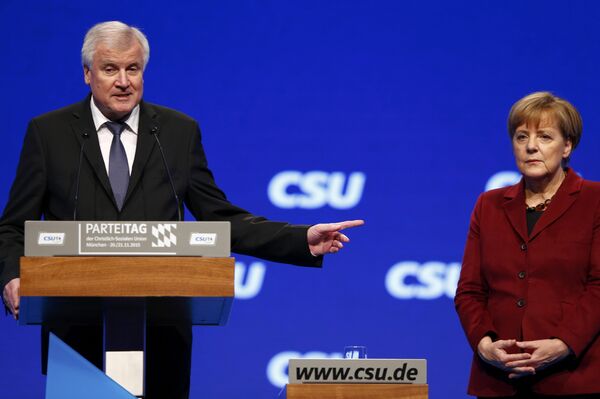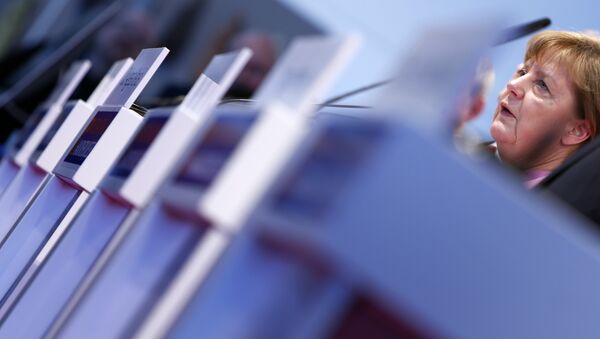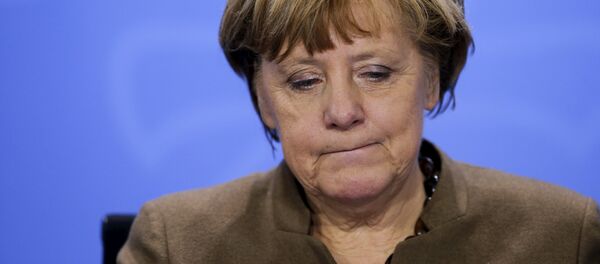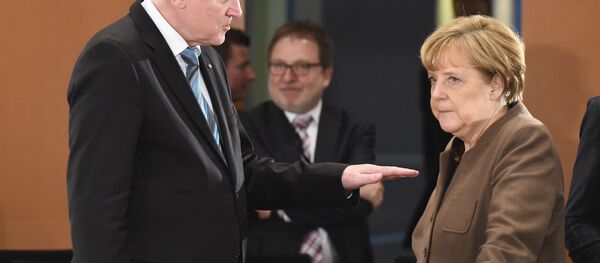The Bavarian Finance Minister Markus Söder said he fears a "profound estrangement" between the CDU and CSU, reflecting deep worries within the CSU that the CDU/CSU Union — which has been a decades long alliance could be permanently damaged because of a dispute about the refugee policy.
Söder told the Süddeutsche Zeitung than the refugee crisis had made Germany as a whole "troubled" and that "the sister parties had become remote" and that there was "a risk of profound alienation between the CDU and CSU."
#EU #Gipfel hat noch keine Lösung f unbegrenzte Zuwanderung gebracht. Das muss jetzt rasch geschehen. https://t.co/9ToqgZIcsG
— Markus Söder (@Markus_Soeder) 20 February 2016
(Twitter quote: "EU has not yet found a solution to unlimited immigration. It must be done.")
His remarks will be taken seriously in the CDU, as Söder is seen as one of the moderates and not nearly as bombastic as the CSU leader Horst Seehofer, who has been severely critical of Merkel's 'open doors' policy on refugees. His southern German state has borne the brunt of the refugees flowing through Hungary and Austria having used the West Balkan route to fell Syria, Iraq, Afghanistan and refugee camps in neighboring states.
At the annual congress of his CSU party Seehofer made the German leader look like "a schoolgirl," according to local media. In a 13-minute tirade, he lambasted Merkel over the handling of the refugee crisis, demanding she set a limit on the number of asylum-seekers the country would accept.

Crucial to the sister-party relationship is the fact that Seehofer leads the CSU which dominates the center-right within Bavaria, and Merkel leads the CDU which dominates the center-right in the rest of Germany. Neither campaign in each other's territory.
Historic Party Split
With the refugee crisis refusing to go away — and becoming a major humanitarian crisis by the day — Merkel's failure to garner support within the EU for a commonly agreed solution is causing division around Europe. Now her failure to control the migrant issue at home is threatening to split the CDU/CSU Union for the first time in 40 years.

In October 1976, the CDU/CSU Union narrowly lost the federal election under Helmut Kohl (CDU) and the CSU — under chairman Franz Josef Straussheld, no great friend of Kohn — held a secret meeting and agreed to sit politically apart from the CDU in the Bundestag.
A row broke out with the CSU threatening to set up CSU association outside of Bavaria in CDU territory and vice-versa. The situation was finally resolved in December and the brief Union split was reversed. Forty years on, Merkel is facing the possibility that — unless she can get a grip of the refugee crisis inside and outside of Germany — Seehofer and his friend in the CSU may be tempted to repeat history. And that will do nothing for her chances in next year's federal elections.




